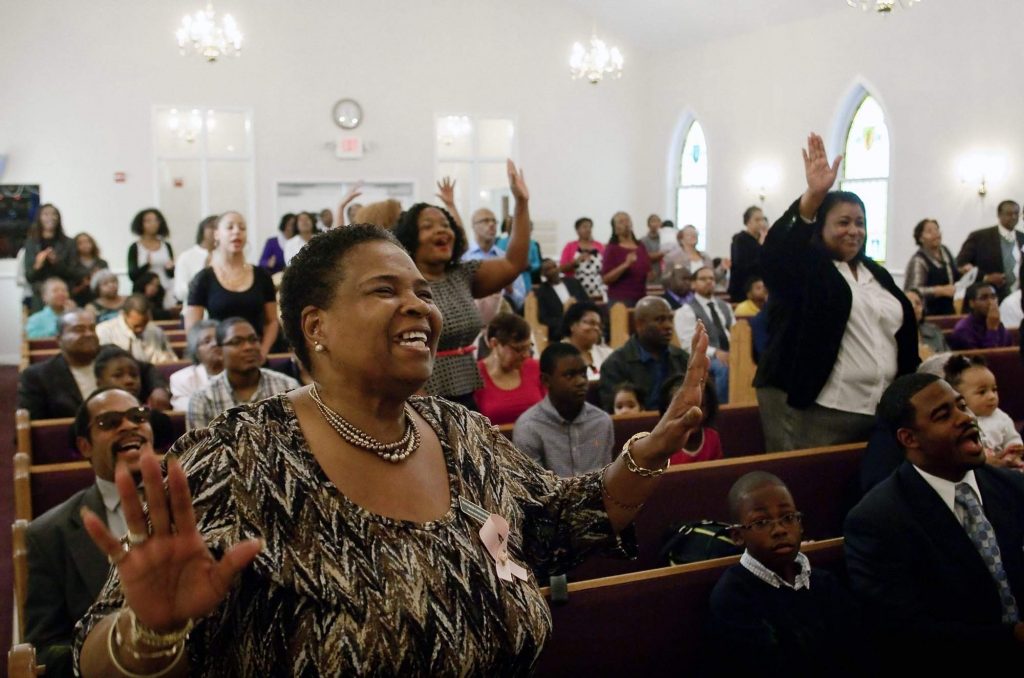Blog Post
The face of Christianity is changing. What does that mean for the pro-life movement?
By Jonathon Van Maren
On January 21, 2013, I attended the Second Inauguration of Barack Obama with several friends. After the Inaugural Address, we joined the pro-life group Created Equal to help man a display of abortion victim photography along the inaugural parade route—shortly thereafter, the president drove by. As he waved through the window of his limousine, thousands of people—many, if not most, being African Americans—waved and cheered wildly. Since we were planning to set up a display to reach the crowds leaving the Inauguration later, I remember being nervous—if these people were such huge fans of the most pro-abortion president in American history, how would they react to our pro-life outreach?
Extremely well, as it turned out. After an hour of people nodding their approval, giving us money “for the work,” and telling us they appreciated what we were doing, I started to wonder how so many clearly pro-life people could at the same time be so enthusiastically supportive of a rock-ribbed abortion supporter like Barack Obama. I thought of that experience again when I was reading an article in Bloomberg earlier this week critiquing the anti-Christian editorial in the New Yorker that complained about the arrival of Chick Fil A in New York City.
The author, Stephen Carter, noted that the snobby columnist sneering at Christians perhaps did not realize who, exactly, he was sneering at. White liberals may not have realized it yet, he wrote, but there’s “a difficulty endemic to today’s secular left: an all-too-frequent weird refusal to acknowledge the demographics of Christianity. When you mock Christians, you’re not mocking who you think you are.” Carter then broke down the numbers:
A 2015 Pew Research Center study of race and ethnicity among U.S. religions provides some basic facts. In the first place, if you’re mocking Christians, you’re mostly mocking women, because women are more likely than men to be Christians. The greatest disproportion is found among black Christians, of whom only 41 percent are male. So you’re mocking black women in particular.
Overall, people of color are more likely than whites to be Christians — and pretty devout Christians at that. Some 83 percent of all black Americans are absolutely certain that God exists. No other group comes close to this figure. Black Christians are far more likely than white Christians (84 percent to 64 percent) to describe religion as very important in their lives. Of all ethnic groups, black Christians are the most likely to attend services, pray frequently and read the Bible regularly. They are also — here’s the kicker — most likely to believe that their faith is the place to look for answers to questions about right and wrong. And they are, by large margins, the most likely to believe that the Bible is the literally inerrant word of God. In short, if you find Christian traditionalism creepy, it’s black people you’re talking about.
Those statistics go a long way towards explaining my experience doing pro-life outreach at Obama’s Inauguration. What it does not explain is why so many socially conservative African Americans vote for abortion enthusiasts like Barack Obama. From Carter:
It’s true that, politically, black Americans are overwhelmingly Democrats, and that’s true of black Christians as well. On the other hand, black Christians tend to be socially conservative: the least tolerant of homosexuality, the most likely to oppose same-sex marriage and the least likely to believe in evolution. If you’re maligning traditional Christianity, the people you’re maligning are disproportionately black.
Here we see something about the future. Look at the figures for the young, on the left-hand side. Only 9 percent of white Christians are young millennials, compared with 21 percent of Asian Christians and 16 percent of Latino Christians. Some 17 percent of white Christians are from the so-called silent generation. No other group comes close. In other words, white Christians are aging. Christians of color are youthening.
As I’ve noted before in this space, the figures are equally striking worldwide. Even as the U.S. and Europe see the growth of atheism and agnosticism, religious faith in general and Christianity in particular continue to explode in parts of the world that aren’t as white. That’s why the Vatican, for example, sees developing nations as the future of the church. And around the globe, the people most likely to be Christians are women of color.
… Only 3 percent of white Christians are first-generation immigrants. That compares with 10 percent of black Christians, 58 percent of Latino Christians, and 66 percent of Asian Christians. In other words, American Christianity is growing heavily through immigrants who are people of color. If Christians are really so scary, maybe it’s time to build that wall.
These numbers don’t particularly surprise me. Here in Canada, non-white people are far more likely to be pro-life and socially conservative than white people, and nearly all of the fierce opposition experienced by the pro-life movement comes from white people. But these numbers do raise many important questions that social conservatives and especially politicians who prioritize issues like abortion should be thinking about. Why are so many voters of color voting for candidates who do not reflect their values on life and family issues? How can the pro-life movement do a better job reaching out to these people, and allying with them? How can people from a wide variety of backgrounds better come together to stand up for the fundamental right to life of the weakest and most vulnerable members of the human family?
I’m not going to pretend that I have answers to all of these questions. But I do think that we should be thinking about them very seriously, questioning previous assumptions, and speaking with people from a wide range of these communities to find out how we can partner in defence of shared values.
______________________________________________________
For anyone interested, my books: The Culture War, Seeing is Believing: Why Our Culture Must Face the Victims of Abortion, and How To Discuss Assisted Suicide, are available for sale here.









Maybe because they aren’t single issue voters? Maybe because banning abortions leads to even more dangerous black market abortions?
It is entirely possible for someone to be pro-life, but think the best solution is legalization and regulation together with taking steps to address the reasons abortions are sought in the first place, rather than criminalizing abortion and sending the entire mess into the black market. That way, abortions could be reduced and controlled, rather than uncontrolled and any access to information regarding the reasons leading to abortions lost.
Well said, Sam. What is not reported and is tremendously significant, is the number of women who in later years suffer devastating emotional pain when they realize they ended a life by having an abortion. Who cares about these people? The only markers of caring that I have seen are the monuments “to the unborn” usually in the Catholic section of a cemetery. It would be interesting to know how these women cope or do not cope. I wonder who comes to grieve with them over the loss they choose with assurances from the clinics of it being just a simple procedure for an inconvenient development. So sad.